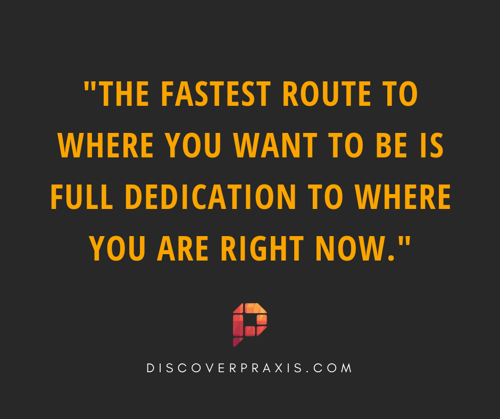Employees should be creating value at work: it makes sense in theory.
But how can you put the value creation mindset into action?
A listener of the Office Hours Podcast asked this question,
“I know this probably sounds like a dream scenario for people who feel overwhelmed by the amount of work they have to catch up on, but my biggest problem is that I don’t have enough to do at my job and it isn’t clear to me how I can just choose to create more value. Any advice?”
First, are you dominating your current position?
How good of a job are you doing on the work you do have now? Give yourself a rating on a scale of one to ten.
Unless you are absolutely certain that you are dominating your current position and can rate yourself a ten, you have no business being bored or saying you don’t have enough work to do. Go back and do the work that you’ve already done well enough to give yourself a ten, then you can move on to the rest of this article.
Start thinking like the owner.
You are not just an employee. You are someone who is dedicated to increasing the value and effectiveness of the company and delighting customers by creating more value for them in every way possible. Don’t think of yourself as someone who has jobs and tasks to do. If you are going to work somewhere, make it worth your while. Don’t half ass it. Think like you own the company.
What could be done better? What’s the mission of the company? What are the pain points? Maybe it’s as simple as cleaning windows or clearing out the fridge. Or maybe it’s something bigger like experimenting with a new organizational tool or chat bot.
Start brainstorming. Create a list of things that could be done. Even if they don’t seem incredibly valuable, just start doing them.
These will typically fall into two different categories. First, new things and enhancements. Maybe it’s reorganizing folders, going through old blog posts and improving the SEO, or finding new tools, setting them up, and experimenting with them.
The second category is the daily activities. These are things that can always be done. Things like cleaning, delivering mail, or sending cold emails (even if they are low yield). Do these seem like low value tasks? Yes. That doesn’t mean you shouldn’t do them.
Low perceived value doesn’t mean it’s not worth the effort.
People often fear that if they start doing lower value tasks just because they have extra time, people will think that they aren’t very important to the company. They would rather pretend that they are doing work than clean the windows because they are worried that people will think they don’t have enough work to do. Don’t be afraid of this, it’s a good thing. It can start a conversation where you can say that you’ve finished all your other high value tasks and wanted to do more. Ask them what could be something better for you to be doing.
You won’t get pigeon holed either. There’s this underlying assumption that if you focus on those low value tasks or give your all to things that are not super fun and romantic, then you’re going to get stuck doing them. People worry that if they start being the guy who cleans the fridge every week, everyone will think they are the janitor and they won’t move up in the company. No. If you’re the person who’s always running around creating value everywhere you can, people are going to see you as the person that’s always hustling.
The fastest route to where you want to be is full dedication to where you are right now.

When you carry yourself as if there are things that you are too good to do or these things that you’re afraid of getting stuck doing, you look like the kind of person that can only create value under ideal conditions. Nobody wants to give the fun work to that kind of person.
When people see you go all in with the things that you’re currently working on, it makes them want to give you more responsibilities. It makes them want to put you in a leadership role and give you creative work to do.
This post is based on the December 19th episode of the Office Hours podcast. Want to get more actionable insights on how to take charge of your life and career? Subscribe now.
July 20, 2018
